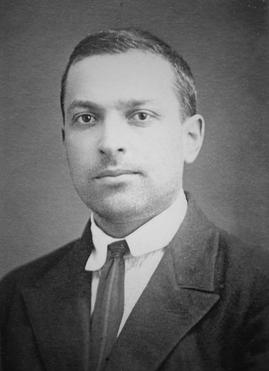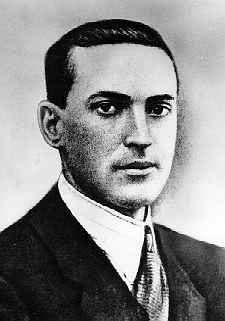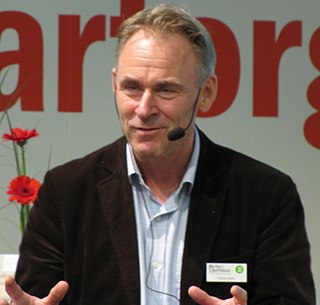Related Research Articles

Lev Semyonovich Vygotsky was a Russian and Soviet psychologist, best known for his work on psychological development in children and creating the framework known as cultural-historical activity theory. After his early death, his books and research were banned in the Soviet Union until Joseph Stalin's death in 1953, with a first collection of major texts published in 1956.

Sir Frederic Charles Bartlett FRS was a British psychologist and the first professor of experimental psychology at the University of Cambridge. He was one of the forerunners of cognitive psychology as well as cultural psychology. Bartlett considered most of his own work on cognitive psychology to be a study in social psychology, but he was also interested in anthropology, moral science, philosophy, and sociology. Bartlett proudly referred to himself as "a Cambridge psychologist" because while he was at the University of Cambridge, settling for one type of psychology was not an option.
In philosophy, psychology, sociology, and anthropology, intersubjectivity is the relation or intersection between people's cognitive perspectives.
Coherence in linguistics is what makes a text semantically meaningful. It is especially dealt with in text linguistics. Coherence is achieved through syntactic features such as the use of deictic, anaphoric and cataphoric elements or a logical tense structure, and semantic features such as presuppositions and implications connected to general world knowledge.
Cultural psychology is the study of how cultures reflect and shape their members' psychological processes.
Theodore C. Bestor was a professor of anthropology and Japanese studies at Harvard University. He was the president of the Association for Asian Studies in 2012. In 2018, he resigned as director from the Reischauer Institute following an investigation by Harvard officials that found he committed two counts of sexual misconduct.
Jonathan Lear is an American philosopher and psychoanalyst. He is the John U. Nef Distinguished Service Professor in the Committee on Social Thought at the University of Chicago and served as the Roman Family Director of the Neubauer Collegium for Culture and Society from 2014 to 2022.

Christopher Donald Frith FRS, FMedSci, FBA, FAAAS is a British psychologist and professor emeritus at the Wellcome Centre for Neuroimaging at University College London. He is also an affiliated research worker at the Interacting Minds Centre at Aarhus University, an honorary Research Fellow at the Institute of Philosophy and a Quondam Fellow of All Souls College, Oxford.

Simon David Goldhill, FBA is Professor in Greek literature and culture and fellow and Director of Studies in Classics at King's College, Cambridge. He was previously Director of Centre for Research in the Arts, Social Sciences, and Humanities (CRASSH) at the University of Cambridge, succeeding Mary Jacobus in October 2011. He is best known for his work on Greek tragedy.
Psychological anthropology is an interdisciplinary subfield of anthropology that studies the interaction of cultural and mental processes. This subfield tends to focus on ways in which humans' development and enculturation within a particular cultural group—with its own history, language, practices, and conceptual categories—shape processes of human cognition, emotion, perception, motivation, and mental health. It also examines how the understanding of cognition, emotion, motivation, and similar psychological processes inform or constrain our models of cultural and social processes. Each school within psychological anthropology has its own approach.

Cultural-historical psychology is a branch of psychological theory and practice associated with Lev Vygotsky and Alexander Luria and their Circle, who initiated it in the mid-1920s–1930s. The phrase "cultural-historical psychology" never occurs in the writings of Vygotsky, and was subsequently ascribed to him by his critics and followers alike, yet it is under this title that this intellectual movement is now widely known. The main goal of Vygotsky-Luria project was the establishment of a "new psychology" that would account for the inseparable unity of mind, brain and culture in their development in concrete socio-historical settings and throughout the history of humankind as socio-biological species. In its most radical forms, the theory that Vygotsky and Luria were attempting to build was expressed in terms of a "science of Superman", and was closely linked with the pronouncement for the need in a new psychological theory of consciousness and its relationship to the development of higher psychological functions. All this theoretical and experimental empirical work was attempted by the members of the Vygotsky Circle.
Cindi Katz, a geographer, is a Professor in Environmental Psychology, Earth and Environmental Sciences, American Studies, and Women's Studies at the CUNY Graduate Center. Her work concerns social reproduction and the production of space, place and nature; children and the environment; the consequences of global economic restructuring for everyday life; the privatization of the public environment, the intertwining of memory and history in the geographical imagination, and the intertwined spatialities of homeland and home-based security. She is known for her work on social reproduction and everyday life, research on children's geographies, her intervention on "minor theory", and the notion of counter-topography, which is a means of recognizing the historical and geographical specificities of particular places while inferring their analytic connections to specific material social practices.
John Widdup Berry is a psychologist known for his work in two areas: ecological and cultural influences on behavior; and the adaptation of immigrants and indigenous peoples following intercultural contact. The first is broadly in the domain of cross-cultural psychology; the second is in the domain of intercultural psychology.
Fathali M. Moghaddam is an Iranian-born psychologist, author, professor of psychology at Georgetown University and director of the Interdisciplinary Program in Cognitive Science (ICOS), Department of Government, Georgetown University.
Manuel Eisner is Wolfson Professor of Criminology at the University of Cambridge, and Deputy Director of the Cambridge Institute of Criminology. He researches the history of interpersonal violence, and has conducted a study on levels of homicide throughout Europe over a period of 800 years. His research has highlighted the ways in which cultural models of conduct of life, embedded in social institutions, have shaped patterns of daily behaviour among adolescent and young adult men, which in turn have influenced the likelihood of frictions leading to aggressive behaviour. He is also recognised for his studies on the developmental causes of crime and delinquency and advocates the effectiveness of early prevention during childhood. Recent projects include the London Medieval Murder Map and the Evidence for Better Lives, a global birth-cohort study in eight cities across the world.

Sverker Sörlin is a Swedish historian of ideas, professor of environmental history, and writer.
The Hans Kilian Award honored researchers whose outstanding scientific achievements provide a deeper insight into the historical and cultural existence of humankind and the changing human psyche. The award, a cash prize of 80,000 euros, was one of the best-endowed social sciences awards in Europe. It was awarded every two years between 2011 and 2019, five times in total.

Anu Realo is an Estonian personality and cross-cultural psychologist. She is professor in the Department of Psychology at the University of Warwick, the United Kingdom, and a visiting professor at the University of Tartu, Estonia.

Jaan Valsiner is an Estonian-American professor of developmental and cultural psychology, the recipient of Alexander von Humboldt Prize (1995) for his interdisciplinary work on human development and 2017 Hans-Kilian-Award winner, the Foreign Member of the Estonian Academy of Sciences and the former Niels Bohr Professor of Cultural Psychology, currently, a professor at Aalborg University, Denmark.
Alexander N. Poddiakov, born on March 21, 1962, in Moscow, is a Russian psychologist, doctor of psychology and professor.
References
- 1 2 "Centre for Cultural Psychology". www.ccp.aau.dk. Retrieved 2021-12-05.
- ↑ "Biography | Gates Cambridge". Gates Cambridge -. 2020-06-25. Retrieved 2021-12-05.
- ↑ "Sir Fredric Bartlett Internet Archive". www.bartlett.psychol.cam.ac.uk. Retrieved 2021-12-05.
- ↑ "Alumni - Fellows | Madrid Institute for Advanced Study". www.madrid-ias.eu. Retrieved 2021-12-05.
- 1 2 "Sigmund Koch Award for Early Career Contribution to Psychology". www.apa.org. Retrieved 2021-12-05.
- ↑ "Brady Wagoner". Methods For Change. Archived from the original on 2021-05-17. Retrieved 2021-12-05.
- ↑ "Viral Communication – Revealing public perceptions of Ethical, Legal, and Socio-Economic Dimensions of the COVID-19 outbreak" . Retrieved 2021-12-05.
- ↑ "Brady Wagoner | Aalborg University - Academia.edu". aalborg.academia.edu. Retrieved 2021-12-05.
- ↑ "News". NIAS. Retrieved 2021-12-05.
- ↑ Colovray, Florent. "COLLEGIUM-LYON - COLLEGIUM". COLLEGIUM-LYON (in French). Retrieved 2021-12-05.
- ↑ "Current Fellows - Fellows | Madrid Institute for Advanced Study". www.madrid-ias.eu. Retrieved 2021-12-05.
- ↑ "Div 26: Society for the History of Psychology". historyofpsych.org. Archived from the original on 2021-04-11. Retrieved 2021-12-05.
- ↑ "Directory of Gates Cambridge Scholars | Gates Cambridge - Part 99". Gates Cambridge -. 2020-04-06. Retrieved 2021-12-05.